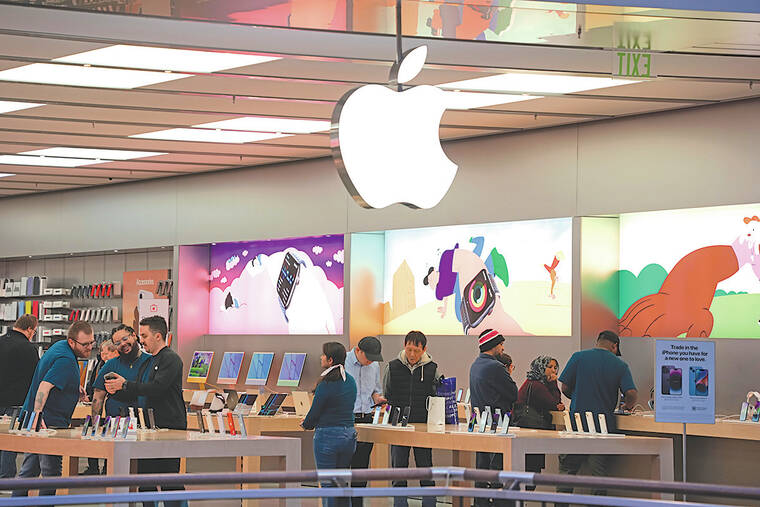Apple’s sales remained on a downward slope during the summer, resulting in a full year of declining revenue at the technology trendsetter with a long history of steady growth that turned it into the world’s most valuable publicly traded company.
The slight sales deterioration announced Thursday for the July-September period marked the end of Apple’s fiscal year — a stretch that saw the company suffer a revenue decrease from the prior year in each quarter.
Although this past fiscal year’s revenue only dipped by 3% from the previous fiscal year, it was still a noteworthy anomaly in a business that has been so successful that Apple became the first U.S. company to be valued at $3 trillion earlier this year.
It’s the first time Apple’s fiscal year revenue has dropped since 2019 when sales fell by 2%.
Although Apple’s revenue in the latest quarter deceased 1% from last year to $89.5 billion, its profit rose 11% to $22.96 billion, or $1.46 per share. Both figures eclipsed analysts’ projections, according to FactSet Research.
Apple’s stock price fell 3% in extended trading after the results came out. The shares have fallen by nearly 10% from their all-time highs reached in July, but are still up by more than 30% so far this year. The erosion during the past few months have been largely driven by worries about the sales slowdown and that China may prohibit purchases of iPhones by government workers amid rising tensions with the U.S., at the same time China’s Huawei rolls out new smartphones that pose tougher competition.
The Cupertino, California, company didn’t fare as well in China as analysts had hoped in the most recent quarter, with revenue in that region declining 2% from the same time last year.
Cook suggested during a conference call Thursday that Apple is gaining market share in China, but a sluggish economy in that country is causing consumers to curb their spending.
Apple’s overall revenue regression stems largely from the longer periods consumers are holding on to their iPhones in an era of incremental improvements to the newest models, as well as the ongoing pressures on household budgets from still-abnormally high inflation.
“The big question is if this is just a blip, or signs of a bigger shift among consumers,” said Investing.com analyst Jesse Cohen.

